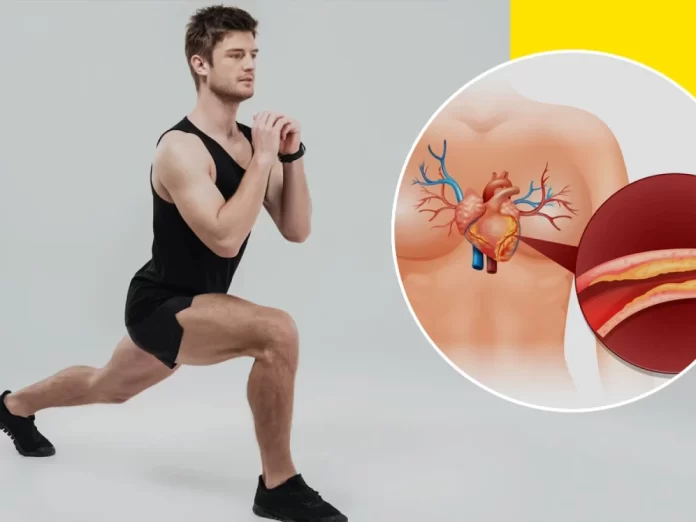Cholesterol is a term which can cause anxiety and fear in the majority of people. We’ve been warned concerning the dangers of high cholesterol, and its connection to heart disease. What is the definition of cholesterol as well as why it is vital to our health? In this complete guide, we’ll explore all the facets of cholesterol, looking at its functions in our bodies, various kinds of cholesterol, and the best ways to keep an appropriate cholesterol level.
The Basics of Cholesterol
Cholesterol, a waxy fat-like substance present in the cell of your body as well as in the foods you consume. Although it is often portrayed as a villain as a bad thing, cholesterol is vital to perform a range of body functions. It is a key component in making cell membranes, making hormones such as testosterone and estrogen and also helping in digestive digestion of fats. In the absence of cholesterol in our body, it would not be functioning properly.
Types of Cholesterol
Cholesterol is broadly classified into two kinds: low density lipoprotein (LDL) and high-density lipoprotein (HDL).
LDL Cholesterol (Bad Cholesterol)
LDL cholesterol is frequently called “bad” cholesterol because high levels of it could lead to the formation of plaque in your arterial arteries, which is called atherosclerosis. This increases the chance of stroke and heart disease. A diet rich in trans and saturated fats may increase LDL cholesterol levels.
HDL Cholesterol (Good Cholesterol)
HDL cholesterol is referred to by its name of “good” cholesterol because it assists in removing LDL cholesterol from bloodstreams. A higher level of HDL are linked to an lowered likelihood of cardiovascular disease. Regular exercising, a diet that is rich in vegetables and fruits moderate consumption of alcohol can increase HDL cholesterol levels.
Managing Your Cholesterol Levels
Once we’ve mastered the different kinds of cholesterol available, we can look at ways to control your cholesterol levels efficiently.
Dietary Changes
Reduce saturated fats: Reduce your consumption of the red meats, dairy products with full-fat as well as fried and other foods.
Improve Soluble Fiber Intake: Diets such as lentils, beans, oats and fruit can reduce LDL cholesterol.
Incorporate healthy fats into your diet: Go towards the sources of unsaturated fats like avocados as well as nuts and olive oil.
The plant Sterols and Stanols The compounds that are found in plants, may aid in lowering LDL cholesterol levels.
Cholesterol | Plant Sterols and Stanols
Sterols and stanols from plants are naturally occurring substances that are found in plants. They have been proven to lower LDL cholesterol levels. They function by preventing the absorption of cholesterol through the digestive tract to the bloodstream. Here’s how you can include them in your daily diet
Foods fortified by Sterols and Stanols A lot of food items like margarine, the juice of oranges, as well as yogurt are enriched using sterols along with stanols. This is a great method to incorporate them into your diet.
Naturally occurring sources: Certain plants naturally have the stanols and sterols. This includes seeds, nuts and whole grains as well as certain kinds of vegetables. The addition of these items to your meal can help reduce cholesterol levels.
Exercise and Physical Activity
Regular exercise can increase HDL cholesterol levels and reduce LDL cholesterol. Make sure you do at minimum 150 minutes of moderate-intensity exercises and 75 mins of intense exercise every week. Even activities such as brisk walking or swimming can have a major impact in your cholesterol level.
Medications for Cholesterol Management
In certain situations lifestyle changes alone might not be enough to reduce cholesterol levels, particularly in the case of an inherited predisposition to high cholesterol. Your doctor may suggest drugs, such as statins and other cholesterol-lowering medications to lower high cholesterol.
The Importance of Regular Check-ups
The monitoring of your cholesterol level with regular visits to your doctor is vital. This will allow you to monitor the progress you are making and to make changes to your food, exercise or medications.
Cholesterol and Your Overall Health
Beyond its importance in cardiovascular health, cholesterol can also play an important part in different aspects of your health and well-being.
Healthy Brains: Cholesterol is essential for the creation of brain cells as well as the creation of neurotransmitters. The presence of low cholesterol levels could be linked to cognitive problems.
Cell Membranes Cholesterol plays a vital ingredient of cell membranes that help to maintain their integrity and keep them fluid.
Hormone Production Cholesterol acts as a precursor to the production of testosterone, sex hormones hormones, as well as vitamin D.
Conclusion
In the end cholesterol is a multifaceted and essential substance that serves many functions in our bodies. Although it’s true that the presence of LDL cholesterol may increase your risk of cardiovascular disease, it’s crucial to keep in mind that not every cholesterol is harmful. HDL cholesterol can be beneficial as it protects your heart.
Through lifestyle modifications such as eating a heart-healthy diet, participating in regular exercise and maybe taking medicines in the prescribed dosage, you will be able to reduce your cholesterol levels and lower the chances of cardiovascular disease. Be aware of the importance of the stanols and plant sterols in decreasing LDL cholesterol. These substances are easily integrated into your diet by consuming supplements in foods and other natural sources.
Achieving a balance between good and bad cholesterol is most important factor in an overall healthy heart and health. Therefore, be aware of the cholesterol level, talk to your physician regularly, and make the right choices to live a long as well-balanced and fit life.







